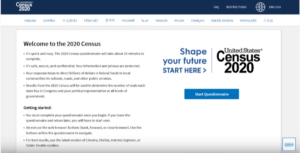How Companies Collect Private Data About Reproductive Health
Information on people’s menstrual cycles is part of the kinds of datasets that are shared and sold to advertisers. Image: Adobe
Image: Adobe
After the right to abortion was struck down in the United States in 2022, debates about the surveillance of people’s reproductive lives have proliferated globally. Much of the debate was focused on period tracking apps: how they could share user data and reveal a possible pregnancy termination, whether people should delete their app, or what apps were safe.
This focus on period tracking apps sidelined the deeper, systemic ways in which all people’s online interactions are tracked, “datafied,” and monetised, which can put people’s reproductive rights under threat. But, what are the intersections between data collection by private companies and the policing of people’s reproductive rights by different states? This article aims to shed some light on this ongoing discussion.
Many different companies worldwide track and gather data about reproduction, especially menstruation. This often takes place without people’s knowledge, and without their awareness of the data’s financial value, the extent of the tracking, or its harmful individual or collective consequences.
A practice known as cycle-based advertising seeks to exploit the hormonal changes that take place during the menstrual cycle.
Today, the business models of most technology or internet-based companies are deeply connected to the large market for data. Most of these institutions aim to extract as much personal data from users and potential users as possible, from anywhere, by any means possible. Different actors then either sell or share this data or aggregate it and sell access to user profiles or insights into this data. This system also enables governments to gain access to people’s private information. State institutions policing people’s reproductive or other rights can either request access to people’s private information from companies, require them by law to submit information through a subpoena, or even buy data sets on the market. Therefore, a wider focus on how companies collect data and monetize it needs to be part of the analysis.
Information on people’s menstrual cycles is very much part of the kinds of datasets that are shared and sold because menstrual and other health data can reveal intimate details about people, their bodies, and their habits. This information can be used for many different purposes: to gain insights into a person’s overall health, to create advertisements that try to exploit (real or perceived) hormonal fluctuations, or to determine whether or not someone is pregnant or trying to become pregnant — something advertisers and governments or even potential employers want to know. In addition, cycle-tracking data can reveal a lot about someone’s political convictions, which allows companies working in the influence industry to target people with political ads, thereby influencing election outcomes worldwide.
A practice known as cycle-based advertising seeks to exploit the hormonal changes that take place during the menstrual cycle. One of the most crucial factors in advertising is knowing whether or not someone is pregnant. Having a baby means that someone’s (shopping) routines are reshaped for years to come. It is a crucial time for companies to ingrain themselves in the shopping habits of new parents, but especially women, because shopping for essential household items is part of household labor, something women have historically been made responsible for. For example, the North American retailer Target, which has been in this business for at least 20 years, made headlines in 2012 when the company allegedly knew about a teenager’s pregnancy before her parents. This is also reflected in the monetary value of pregnant people’s data: if an average person’s data is worth USD 0.10, a pregnant person’s data is worth USD 1.50. Therefore, being able to identify pregnant shoppers can help companies make millions in profit.
Period tracking applications can even facilitate companies’ and governments’ access to information about people’s reproductive lives. In a 2019 study, researchers revealed that Maya, a popular period tracker with more than 5 million downloads on Google Play, informs Facebook when a user opens the app. Crucially, Maya shared data with Facebook before users agreed to the privacy policy.
But period trackers are not the only companies in the business of monetizing data about reproduction. Advertising companies who sell location-based information also monetize data about pregnant people — and, by extension, can reveal who has visited or accessed an abortion clinic. Another example is SafeGraph, a company that has sold information about people visiting clinics that also provide abortions. Even though SafeGraph sold anonymised information about groups of people, they also included the locations people came from, how long they stayed at the clinic, and where they went afterwards. This set of information makes it easier to reverse the anonymisation of the dataset.
Data brokers, in general, seek to acquire all kinds of information about people in order to add it to different user profiles; often this also includes extremely sensitive information such as being a survivor of sexual assault or information about specific conditions, illnesses or treatments.
Marginalized groups are more at risk when it comes to surveillance and their reproductive rights have historically been grossly violated
While being targeted by advertisements might seem a benign consequence of companies having access to intimate data, it is not entirely so. These ads will not only be targeted at you to sell you products but can also inform ads promoting political candidates and ideologies. In addition, pregnancy-related ads are pervasive and “sticky.” Once identified as “expecting parent” and “female,” you see these ads everywhere — even if the pregnancy ends pre-term.
This information could also impact insurance rates if it is routinely collected by employers (in the US), as menstrual data can reveal underlying health conditions or if someone is trying to become pregnant. Pregnancy is still a reason why people are not promoted or hired; therefore, the collection of cycle-related data by an employer could also harm job prospects.
The solution to this problem is often framed as one of individual or consumer choice and privacy. While informing individuals of what happens to their data and providing them with alternatives is a crucial step towards a solution, a discussion on how race, gender, class and ability limit what choices people can make must also be part of the conversation.
Individuals changing their tracking decisions does very little to mitigate the collective harms and downstream effects of this pervasive data collection of people’s reproductive lives. Even if you find the safest period tracker, which does not sell any data, your data could still be used to disadvantage others.
It is crucial to consider how the risks and obstacles we face online/offline are not the same. Marginalized groups are more at risk when it comes to surveillance and their reproductive rights have historically been grossly violated. It is crucial to center these histories, solidarity and mutual care in a discussion on pathways out of this overwhelming situation.
Your support is crucial…With an uncertain future and a new administration casting doubt on press freedoms, the danger is clear: The truth is at risk.
Now is the time to give. Your tax-deductible support allows us to dig deeper, delivering fearless investigative reporting and analysis that exposes what’s really happening — without compromise.
Stand with our courageous journalists. Donate today to protect a free press, uphold democracy and unearth untold stories.







You need to be a supporter to comment.
There are currently no responses to this article.
Be the first to respond.